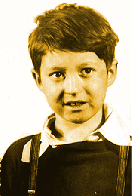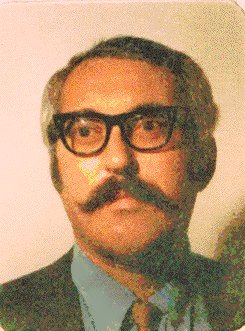Who works in universities and for accessing the content of her/his own intellectual output, always thought that Open Access was the frontline for all sciences and disciplines against the power of big publishers.
But should we slow down a bit our enthusiasm and rethink the meaning of Open Access publishing in the Humanities ?
Yes if we follow the conclusions of the important Finch Report on OA in the UK (Accessibility, sustainability, excellence: how to expand access to research publications. Report of the Working Group on Expanding Access to Published Research Findings): producing free information and scholarly contents is not done for free. This is exactly what the Centre pour l'édition électronique ouverte (Cléo) (CNRS, Université de Provence, EHESS and Université d'Avignon) in France understood in February 2011 with their offer for an OpenEdition Freemium programme for libraries, which was the "Cléo's innovative economic model for Open Access" where
libraries will soon contribute to
the costs of free information and scholarly contents. Marin Dacos for OpenEdition published recently a statement on OA and OA business model. This model creates a form of Open Access publishing that enables authors to publish and readers to read without financial obstacles. OpenEdition hopes to convince the French Government that this OA academic model should be backed up.
But in general, following the Freemium OpenEdition economic model in France, OA publishers and universities should develop more services to academic libraries to foster, on the long run, a fully operative OA and gather some money from these libraries participating directly to a better diffusion of OA contents in the Humanities and Social Sciences. Maybe a continuing interaction between libraries and OA publishers will allow to understand better the kind of services academic libraries would like to see implemented in such a business model like Freemium, etc.?
But in general, following the Freemium OpenEdition economic model in France, OA publishers and universities should develop more services to academic libraries to foster, on the long run, a fully operative OA and gather some money from these libraries participating directly to a better diffusion of OA contents in the Humanities and Social Sciences. Maybe a continuing interaction between libraries and OA publishers will allow to understand better the kind of services academic libraries would like to see implemented in such a business model like Freemium, etc.?
 This
is why the AHA recently argued about the fact that the movement toward
"open access" of scholarly journal articles was not looking at the
impact on humanities scholarship as a whole for maintaining the real
costs of OA.
This
is why the AHA recently argued about the fact that the movement toward
"open access" of scholarly journal articles was not looking at the
impact on humanities scholarship as a whole for maintaining the real
costs of OA.The AHA writes in their official statement that until now, "the conversation has been framed by the particular characteristics and economics of science publishing, a landscape considerably different from the terrain of scholarship in the humanities. "

This is what suggests the post "Not So Fast on 'Open Access" recently published by AHA Today on September 24, 2012. Not to say that many tweets and blogs in the US and everywhere already informed, commented and discussed this controversial issue and statement which was not published in Perspectives Online, the association's famous Bulletin in its September issue, but on the AHA blog, for a faster diffusion. Comments were offered that same day in Inside Higher Ed for example which describes Dan Cohen's critical lecture.
The director of the Center for History and New Media at George Mason University wrote -I quote here Scott Jaschik Inside Education Ed interesting post - "that he understood "the bind that professional societies outside of the sciences are in, with pressure toward open access while worrying about the sustainability of their relatively small publishing units. In that context, this statement is understandable." But he added [...] that there has "been a great deal of thinking over the last decade about sustaining open-access publishing beyond what the Finch Report recommends with subvention fees" Cohen was looking more at "an energetic discussion about creative solutions that allow historical scholarship to reach the broadest possible audience".
Dan Cohen's comments on the AHA statement asking for more concerns for historical scholarship seems not to offer real alternative economic models and new principles towards a broader global policy for OA in the humanities where the solution mentioned above and offered by the Cléo with the Freemium program does offer one.
The OpenEdition proposal was to enter in contact with libraries on their own field of duties: producing services for the community of humanist and social scientists scholars that libraries would pay for but maintaining open and free the access to their intellectual output.
 The content of the AHA Statement on Scholarly Journal Publishing is here reproduced in its entirety for you to judge and comment:
The content of the AHA Statement on Scholarly Journal Publishing is here reproduced in its entirety for you to judge and comment:
"Many
members of the international scholarly and scientific community are
justifiably concerned by a growing inequality of access to the fruits of
their labors. The subscription prices for many journals, especially
scientific journals, have escalated to the point where almost no
individuals and fewer and fewer institutions can afford to subscribe.
Prosperous universities and institutes maintain their subscriptions and
their members thereby enjoy free access to the content of thousands of
journals. Other, less fortunate, scholars have free access to declining
numbers of journals, thereby impoverishing the research and pedagogical
capabilities of their communities.
In
today’s digital world, many people inside and outside of academia
maintain that information, including scholarly research, wants to be,
and should be, free. Where people subsidized by taxpayers have created
that information, the logic of free information is difficult to resist.
The
AHA, like other scholarly societies, has been wrestling with this
complex discourse for some time. The issues have provided a focus of
conversations in our governing Council; and staff have participated in
relevant conference panels. Recently, however, decisions made at
individual institutions regarding faculty publication, debates over
federal legislation, and the influential “Finch report” in the United Kingdom have drawn broader attention the issue of open access to scholarly journals.
The
Finch Report is particularly significant because it is likely to
influence public policy. Relying implicitly on evidence and practices
largely drawn from the sciences, the Report builds a case for
open-access journals, free to everyone with internet access. It
recognizes, however, that information is not free (indeed never has
been); financial resources are required to produce high quality academic
journals – even of the digital variety. Accordingly, the Report
recommends a transition in the financing of journals away from
subscription revenues to a system in which authors pay journals when
their work is published and all content is offered free to readers. In
the Finch Report, this is called an author payment charge, or APC.
The
concerns motivating these recommendations are valid, but the proposed
solution raises serious questions for scholarly publishing, especially
in the humanities and social sciences.
(a) Would the unfairness of unequal access be replaced by a different unfairness, one of opportunity to publish based on the availability of funds? Rich universities (and rich authors) can with equanimity pay a charge to have work published. So can those funded by research grants with provisions for publication subventions built in. But others, especially junior scholars and those with only tenuous institutional arrangements, cannot pay. This different unfairness would be at least as pernicious as the current one. It would particularly diminish publication opportunities in fields where grants tend to be small and not central to the way research is done. For a foundation considering a million dollar physics grant, the inclusion of an additional $6,000 to publish the three articles that the proposers hope will result is completely trivial; for a historian who already funds his/her own summer trips to archives, that same $6,000 could represent a substantial share of the year’s salary.(b) While libraries (and individuals) would be able to maintain journal subscriptions, would universities and research institutes find themselves robbing Peter to pay Paul? Would the money saved from library budgets instead be used to subsidize publication for scholars?(c) Would the finances of the most comprehensive “flagship” journals be imperiled? While they accept roughly the same number of articles as others, they must evaluate many more submissions across a much wider swath of their disciplines, and have larger sections devoted to book reviews and other content that produces no revenue? Last year the American Historical Association spent over $460,000 to support the editorial processes of the American Historical Review, such as arranging double-blind peer review for articles, administering the selection of books and reviewers, and copyediting the content. How could AHR and others like it maintain the highest editorial standards without lowering its standards and accepting many more articles? Alternatively, flagship journals would have to charge much higher publication fees to cover the costs of reviewing the submissions they do not accept; this, too, would create perverse effects, encouraging more junior scholars or those at less wealthy institutions to shy away from the journals where their findings would get the most attention.(d) Would an APC system create perverse incentives for both journals and authors? Would it tempt journals to publish as many articles as possible, and inspire authors to post papers on websites and bypass journals and peer review altogether? The American Historical Review, for instance, currently publishes only about nine percent of the articles received. The Editor and Associate Editor read all articles submitted, and if the articles are accepted for further review, the staff refer to an extensive (and expensive) database to find historians working in an array of institutional settings. Peer review is a costly procedure but justified where quality of scholarly publication is a high priority.The current system of access to journal content certainly contains elements of unfairness, in addition to adding burdens to budgets of institutions already coping with diminishing resources. But solutions that ignore the wide differences between the respective landscapes of science and humanities journals generate new, and more difficult, dilemmas. Requiring authors to pay the costs of their own publications is not the answer. The AHA suggests that historians begin thoughtful conversations at their own institutions and participate in the discussions that we will initiate at our annual meeting, our web site and other appropriate venues.






![[logo: Kansas Heritage Group]](http://www.kansasheritage.org/heritage.gif)
